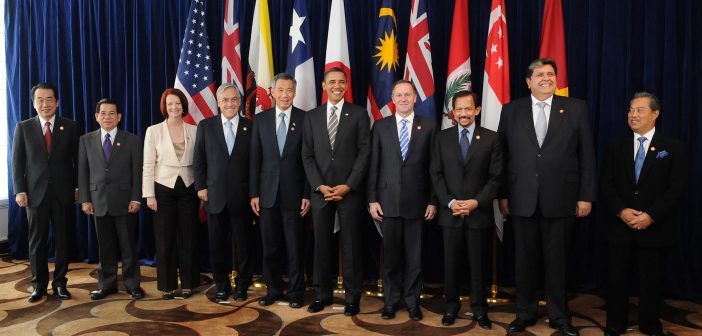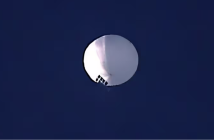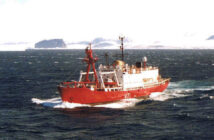Hillary Clinton and Donald Trump have little in common but their opposition to the Trans-Pacific Partnership.
Both presidential candidates have incessantly bashed the largest trade deal in history. To hear them tell it, 12 nations led by Washington spent years negotiating a deal to kill as many US jobs as possible.
On the contrary, TPP will help the US economy and advance Washington’s strategic relationships in Asia at the very time China is working hard to push America from the region.
Signed in February and pending Senate ratification, TPP will create a rules-based economic order in Asia with America at its center instead of allowing the world’s largest and fastest growing region to be dominated by an increasingly assertive China. It is the economic component of of President Barack Obama’s “pivot” to Asia where the US military is increasing its presence to reassure allies worried about Beijing’s steadily growing bullying.
TPP became a target during the primaries as the Republican Trump and Democrat Bernie Sanders wooed working-class voters with their populist rhetoric. Clinton – who as secretary of state was involved in TPP talks – now opposes it to attract Sanders and Trump supporters.
When polled, most Americans who know about the deal support it. Trouble is, a hefty chunk of Americans don’t know enough about TPP to pick sides.
Economically, TPP will cut tariffs on the very kind of advanced products America excels at making and Asia is eager to buy. These tariffs have historically made US products more expensive, so TPP will benefit US industry while also level the playing field by phasing in common environmental, trade and labor practices.
Among the industries that will benefit significantly are high-tech and high-paying jobs in fields like aerospace.
Asia-Pacific airlines are expected to buy 3,900 passenger aircraft over the coming decade, a lucrative market for US jet maker Boeing that already has orders for 700 jets from regional customers. As Boeing faces competition from Europe, Brazil and even China, TPP would help America’s leading exporter that supports some 1 million skilled aerospace jobs that both candidates want to protect.
TPP also will improve regional security by binding together nations that have, over history, had contentious relationships. The more tightly nations come together, the more effectively they can collectively stand up to China – which is in America’s strategic long-term security interests of regional stability and growth.
Analysts have said China was restrained before and during the G20 meeting in Hangzhou, but with the meeting over, Beijing is expected to once more ratchet up tensions.
Just as Washington and its allies have worked to create a trans-pacific partnership that excludes China, Beijing is working aggressively to create its own regional economic order that excludes the United States through such initiatives as One Belt, One Road and the Asian Infrastructure Investment Bank.
China launched the AIIB in 2014 with a capitalization of $100 billion – nearly half that of the Washington-based World Bank – to finance regional development and advance Beijing’s interests.
Without a plan of its own – in part for lack of congressional support for any new spending – the White House was left to beg its allies to abstain from the new organization. All, including its closest partner, the UK, joined to advance their own economic interests in giant and still growing market.
Remarks by Clinton and Trump have fueled concern across Asia where leaders fear that no matter who’s elected in November, the outcome for TPP may be equally bad.
The failure of TPP will be good news for China, however, that wants a clear example of American unreliability as an economic and security partner.
For years, Beijing has been telling nations to play ball by China’s rules and the combination of rhetoric, punitive economic tactics and a dramatic military buildup has some in the region questioning America’s future role.
Time and again, Asia-Pacific nations have made it clear they want America to remain engaged regionally as an economic and security leader, one reason why nations sought to have Washington to spearhead the TPP talks. It also sparked Obama’s renewed focus on the region after the wars in Afghanistan and Iraq.
Obama heard the concerns during his valedictory trip to the region, stressing he will press to get TPP ratified before the new congress convenes in January.
All trade deals have jobs implications, and TPP is no exception. Jobs are lost and created for a vast array of reasons, from technological and market changes, to consumer trends, education and labor costs. Mindlessly blocking TPP in the hopes that America won’t lose more jobs is delusional.
Those who suggest the deal can easily be renegotiated need to think again. With TPP signed, reopening talks are unlikely and having made compromises, nations won’t be eager to give America even more preferential terms that could prove politically unpalatable at home.
When America’s ally and regional consigliere, Singapore, publicly sounds the alarm, it’s time to listen. During his state visit to Washington in early August, the city-state’s Prime Minister Lee Hsein Loong said that “for America’s friends and partners, ratifying the TPP is a litmus test of your credibility and seriousness of purpose.”
This is a moment when America can’t afford to send its allies or its potential enemies the wrong signal.
The world today is far more globalized and interdependent than ever as ideas, technology and people move ever faster.
Every government has an obligation to think long-term about employment. America has abundant human and investment capital. It needs a strategy to smartly foster industrial and employment growth through tax breaks, incentives, rebates, scholarships as well as programs to train, and when necessary retrain, workers to mitigate the impact of tectonic workforce shifts that are the norm rather than the exception in economic history. Propping up uncompetitive companies or outmoded industries isn’t the answer.
And a core element of any security strategy must be economic stability and growth.
The House and Senate have one chance to pass the TPP. A failure to do so will signal to Asia that America – as Beijing has long insinuated – is yesterday’s power, an unreliable partner with no future in an increasingly important and volatile region.




